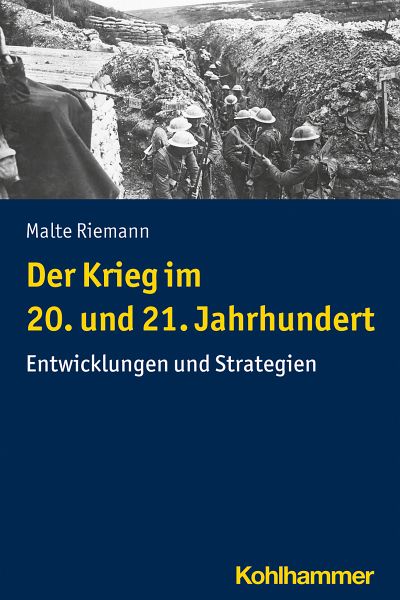
Der Krieg im 20. und 21. Jahrhundert (eBook, PDF)
Entwicklungen und Strategien
Versandkostenfrei!
Sofort per Download lieferbar
Statt: 28,00 €**
24,99 €
inkl. MwSt. und vom Verlag festgesetzt.
**Preis der gedruckten Ausgabe (Broschiertes Buch)
Alle Infos zum eBook verschenkenWeitere Ausgaben:

PAYBACK Punkte
0 °P sammeln!
War is a chameleon, as the famous Prussian General Carl von Clausewitz remarked in the nineteenth century. And war can in fact take on different outward forms. Particularly during the last 120 years, the modes and strategies of war have changed several times & from people=s war and total war, through the Cold War, to ?humanitarian= and asymmetric war. All of these forms of war also make statements about the social, political and economic conditions in the states that wage them. Studying war is therefore not merely a specialized discipline in military history, but rather an integral component o...
War is a chameleon, as the famous Prussian General Carl von Clausewitz remarked in the nineteenth century. And war can in fact take on different outward forms. Particularly during the last 120 years, the modes and strategies of war have changed several times & from people=s war and total war, through the Cold War, to ?humanitarian= and asymmetric war. All of these forms of war also make statements about the social, political and economic conditions in the states that wage them. Studying war is therefore not merely a specialized discipline in military history, but rather an integral component of a critical view of history. Malte Riemann provides a concise introduction to the various forms of war and the way in which they have developed since the early twentieth century. He vividly discusses types of war, war technologies and military strategies. Beyond the narrow military field, the effects of war on societies and on the politics of the belligerent countries are also described. In the introduction, the author recounts debates in the history of ideas on the nature of war in modern times. This is followed by seven chronologically arranged chapters, initially considering the First World War (a people=s, positional and colonial war). This is followed by a description of the Second World War as a ?total= war. Subsequent chapters are devoted, among other matters, to the Cold War and the wars that followed the dissolution of the Soviet Union. In conclusion, the author provides a forward look towards potential scenarios for the future of war, based on current developments (the war on terror, asymmetric war, drone war, ?private war= conducted by mercenaries, and automated war). The fact that the topic of war has never been off the political agenda since 1990, and that even in Germany we are by no means living in an age of perfect peace, is made particularly clear whenever the Bundestag has to decide yet again on the deployment of the Federal Armed Forces abroad. It is this topical relevance of the issue that has given the New Military History its impetus, attracting wide interest both from the general public and in the academic field.
Dieser Download kann aus rechtlichen Gründen nur mit Rechnungsadresse in A, B, BG, CY, CZ, D, DK, EW, E, FIN, F, GR, H, IRL, I, LT, L, LR, M, NL, PL, P, R, S, SLO, SK ausgeliefert werden.













